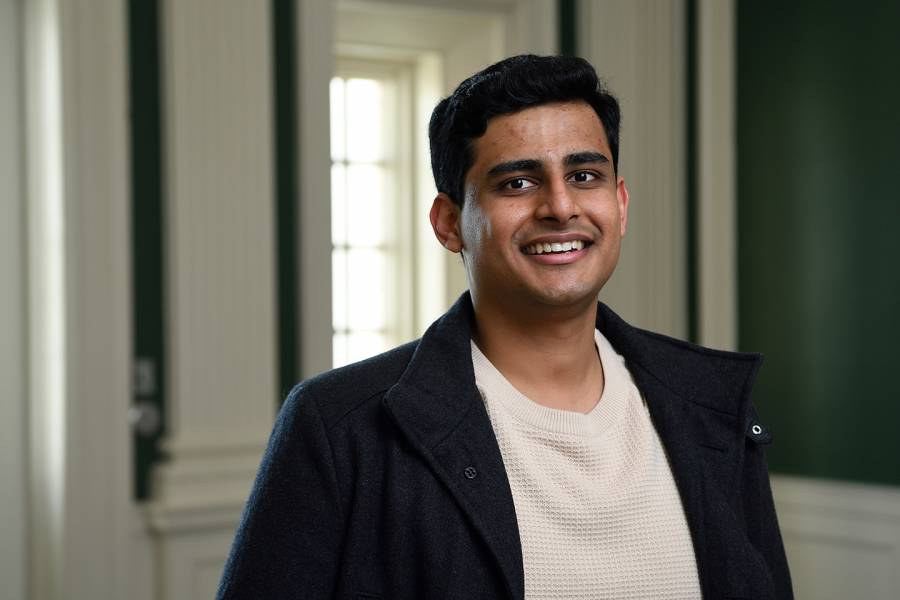Shubhayu Bhattacharyay, a Johns Hopkins University senior majoring in biomedical engineering, has won a Gates Cambridge Scholarship supporting his post-graduate studies in clinical neuroscience at the University of Cambridge in England.
Established in 2000 by the Bill and Melinda Gates Foundation, the scholarship enables outstanding students from outside the United Kingdom to pursue a full-time graduate degree in any subject at the University of Cambridge. Only 80 scholarships are granted worldwide each year, with about 25 allotted for American students.
While at Cambridge, Bhattacharyay will pursue a PhD in clinical neuroscience and work with David Menon on the development of artificial intelligence systems that collect and visualize patient data for those suffering from traumatic brain injuries.
The research continues work Bhattacharyay began at Hopkins alongside Robert Stevens, professor of anesthesiology and critical care in the School of Medicine. Bhattacharyay’s research involves using learning algorithms and quantitative biomarkers, such as movement data, to better classify patient outcomes and adjust treatments accordingly.
“Shubhayu is bright, resourceful, enterprising, and also extremely hard working,” Stevens said. “His work is an extension of an innovative hypothesis that he brought to the table.”
Bhattacharyay’s interest in machine learning goes back to when he was an elementary school student. He said he used to read Popular Science and fantasize about creating a device that could combine computer technology and the human brain. He sustained that interest in neurotechnology throughout high school, and began pursuing computational neuroscience at Johns Hopkins University.
Through his work with Hopkins’ Neuro-ICU, Bhattacharyay has learned the importance of high-quality neurocritical care to patients with traumatic brain injuries. According to the Neurocritical Care Society and the U.S. Census Bureau, only about 68% of Americans live within 90 minutes of a Neurocritical Care Unit. For those without access, Bhattacharyay says, it can be difficult to correctly diagnose issues.
“Seeing that people are receiving conflicting advice and generalized treatment plans that don’t really work is just heartbreaking,” Bhattacharyay said. “So, if there is some insight in large data sets that can unlock the future of clinical treatment for brain injury, I would love to play a part in that.”
According to Bhattacharyay, Menon’s lab in Cambridge is on the forefront of informatics research for neurocritical care. While studying with the team, Bhattacharyay will see the impacts of his artificial intelligence research firsthand as he applies his techniques directly to patients.
After completing his PhD, Bhattacharyay plans to attend medical school, specializing in either neurosurgery or neurocritical care, followed by a career treating those with traumatic brain injuries. He said he is eager to start the three-year program at Cambridge this fall.
“This is a great opportunity to learn from the future leaders across different disciplines and nationalities,” Bhattacharyay said. “I expect this program to enrich my understanding of the world, and help me build a lifelong international network.”
– Jacob deNobel

